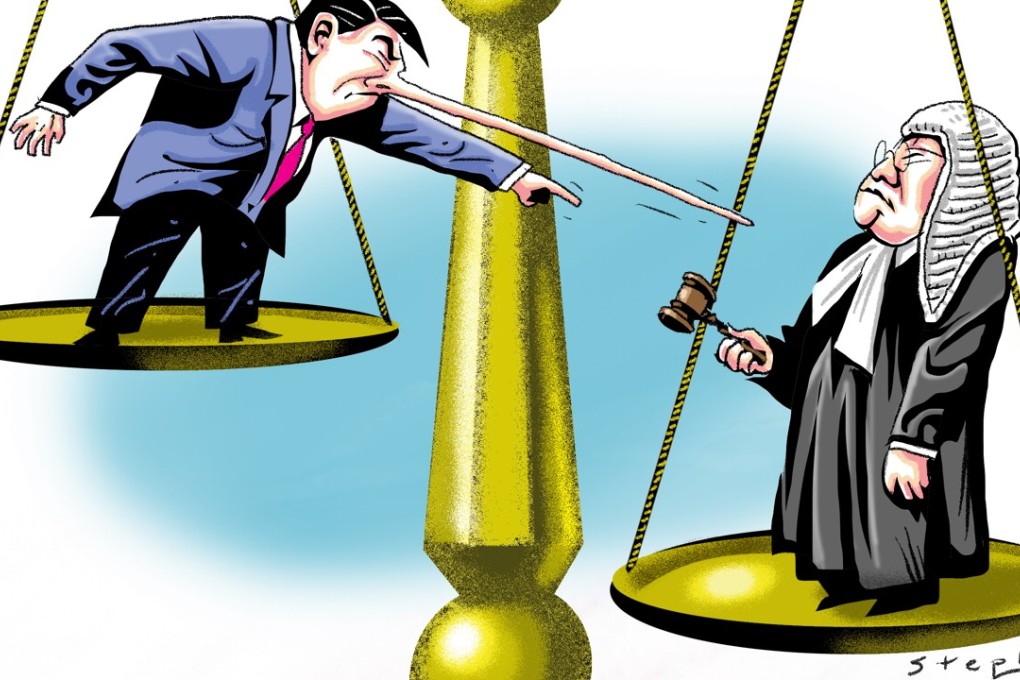Critics of Hong Kong court judgments must at least stick to the facts – or be found guilty of playing politics
Ronny Tong says Chris Patten and other politicians who accuse our judges of making ‘political judgments’ in high-profile cases, like the recent sentencing of pro-independence activist Edward Leung, must take off their own tinted glasses

There is a burning question on a lot of people’s minds these days: why do politicians want to attack Hong Kong’s judiciary and undermine our rule of law?
Some say the answer is “simple”. Some politicians think that, to fight for democracy in Hong Kong, they must attack the system; to attack the system, they must break the law; and, since the judiciary is standing on the side of the law, the judiciary is standing on the side of the enemy. Since the enemy is evil, the judiciary must be, too.
That is the “logic” of their behaviour. One would have thought they should at least keep to the facts.